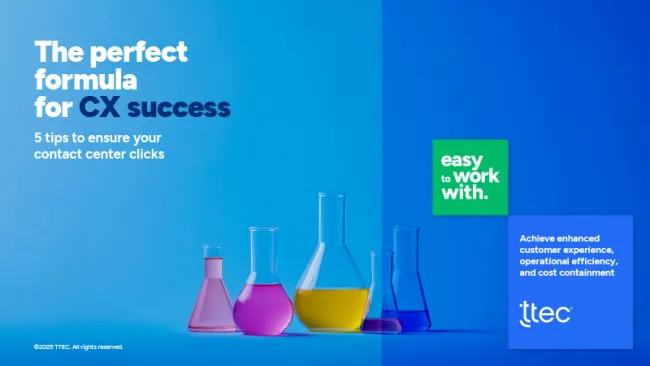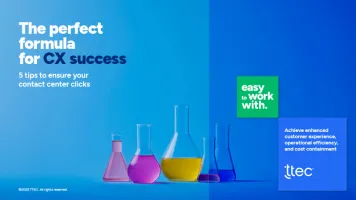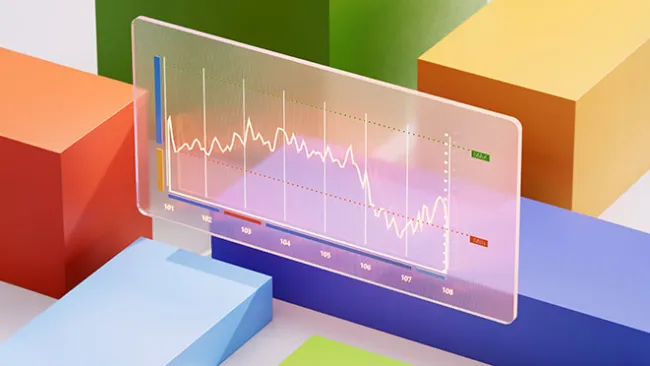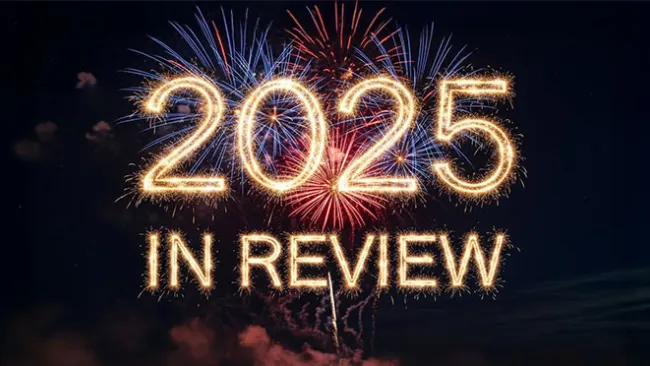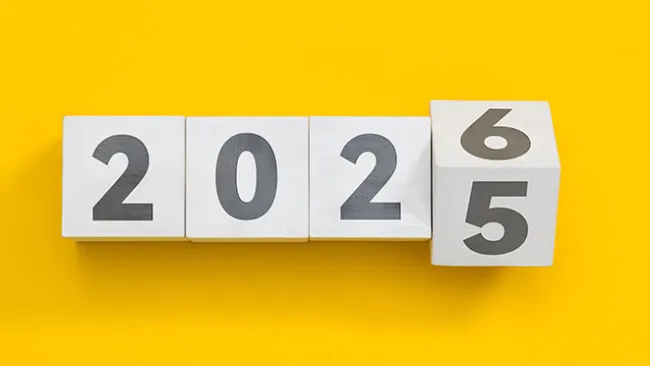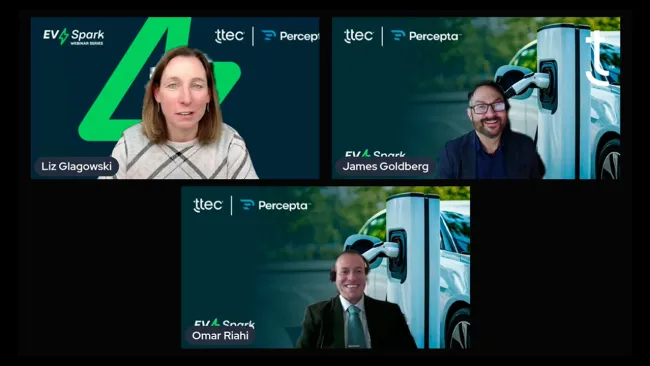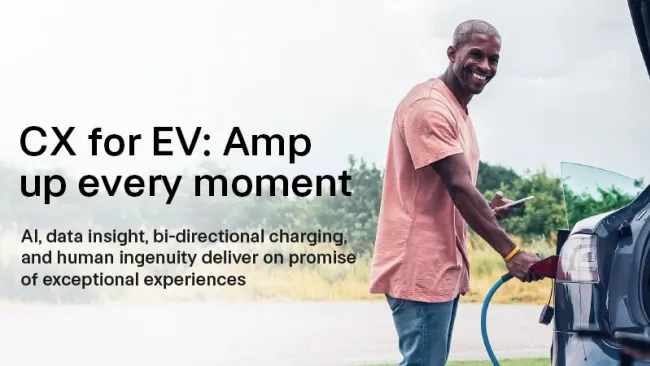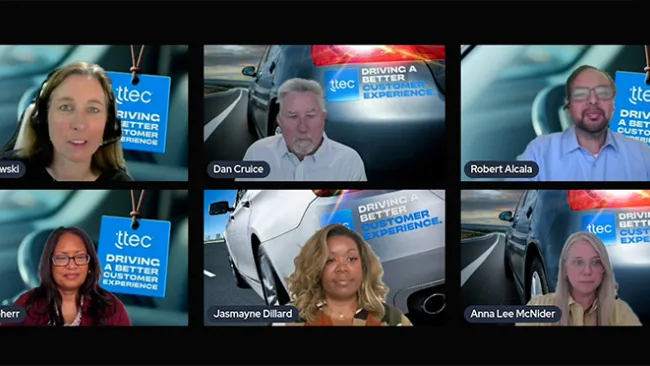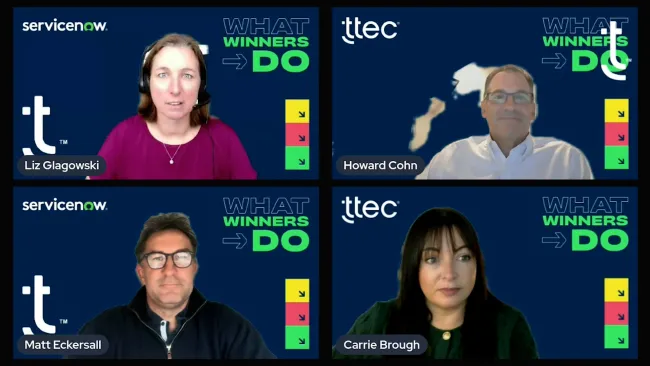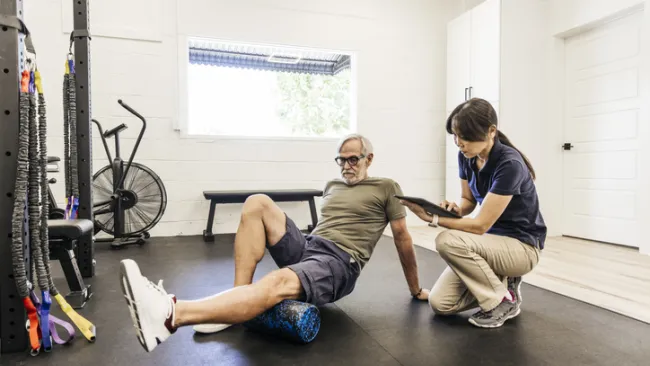Have you ever wondered what business lessons you could pull from Tyrion Lannister’s exploits in Game of Thrones? Or perhaps you are looking to the future and wondering about AI’s place in your organization?
We recently reached out to customer experience leaders and experts to hear what business books are grabbing their attention this summer.
Listen in as Shep Hyken, Jeannie Walters, Megan Burns, Adam Toporek, and Paul Ignasinski all give their take on what should be the best book you’ll enjoy on the porch this season.
Transcript:
You're listening to see CX Pod by TTEC and the Customer Strategist journal.
Dylan Haviland: Hey everyone, this is Dylan Haviland. I'm a staff writer for the Customer Strategists Journal. Today I'm stepping in for Liz to bring you an episode on customer experience summer reading books. Now for this I reached across to talk some great customer experience leaders and some of us at TTEC to see what they're reading that really offers insightful and impactful knowledge on delivering a great customer experience.
Now for mine, I want to open on Bruce Craven's Win or Die. It's a leadership book on game of Thrones. Now I know the last season was a little indecisive for some people, but this one really offers some really funny and just great advice on your favorite characters from Jon Snow to Tyrion Lannister to Queen Cersei and basically the lessons they've learned throughout their battle for the Iron Throne and how to really apply that both in life and in the business world. I really think it's just some great tips for both super fans of the show and someone who's just into fantasy or great fiction. Bruce Craven teaches leadership through fiction at Columbia business school. And I really think it's worth a read.
The first person I reached out to is Shep Hyken. He's a pretty well-known author and an expert on customer experience. Here’s what he has.
Shep Hyken: Hi Shep Hyken here, customer service and experience expert. And I've been asked by Dylan to share my summer reading. So, aside from my own books, like the Convenience Revolution that just came out, I know, I know that's so self-promotional, but hey, why not? I have the opportunity to share my favorite books. Well that's one of them.
But here's another one that I just got from Roger Dooley, who wrote a book titled Friction, the Untapped Force that can be your most powerful advantage. And actually it's the elimination of friction, which ties very closely into the concepts of the book from the my book, the Convenience Revolution.
And how about David Avrin’s Why Customers Leave (and How to Win Them Back), this is a great book. I thoroughly enjoyed it, filled with lots of great examples and lessons.
And here's a fun one. You're going to love the title by John Brandt, Nincompoopery: Why Your Customers Hate You--and How to Fix It. I just love the title Nincompoopery it drew me right in. And of course the book is great as well.
And finally, here's a great one, Think Like Amazon: 50 1/2 Ideas to Become a Digital Leader, by John Rossman, who actually was an executive at Amazon, he wrote this book and it just gives you a glimpse and insight into the way that Amazon thinks. You can take some of that thinking and apply it to your business.
So there are a few books for you to consider for summer reading. I know we're about halfway through the summer, but hey, if you read a lot and you're on airplanes or maybe just have free time, this is how you spend your time. It's like a whole college education happening right in front of you all. Thanks for listening. This is Shep Hyken reminding you to always be amazing.
Dylan Haviland: Up next is Jeannie Walters, who I listened to give a great Ted Talk on meaningful micro engagements. Definitely worth the checkout.
Jeannie Walters: Hey everyone. It's Jeannie Walters. I'm the CEO of Experience Investigators as well as a keynote speaker and writer. I'd like to recommend for your summer reading on customer experience a few books.
One is The Power of Moments by Chip Heath and Dan Heath. This has been out for awhile, but I still refer to it all the time. I think it's a really great story and a way to get all of us into the right mindset of making sure that we are treating customers the way they need to be treated at every moment and understanding the power of really knowing which moments matter a little more than others. So that's a great book I would recommend for anybody.
Another book I'd recommend for those of you who are leaders is the Hero Factor. This one's by Jeffrey Hayzlett with Jim Eber and the subtitle is How Great Leaders Transform Organizations and Create Winning Cultures.
And it's my personal opinion that when it comes to customer experience work, we have to start with the culture. We have to make sure that we're leading great teams, that we're really providing the environment for the employees to be engaged enough and to really see their mission every day in order to deliver the best possible customer experience for our customers. So that's another one I'd recommend.
And finally my last recommendation is called Thanks for Coming in Today. It's by Charles Ryan Minton and the subtitle here is Creating a Culture Where Employees Thrive and Customer Service is alive. And this one definitely is more customer service focused, but it's all about what are the ways that we can really serve one another inside our own organization in order to serve the customers.
So I hope that helps with your summer reading list and if you have any questions at all, feel free to reach out to me @experienceinvestigators.com thank you.
Dylan Haviland: Here is Megan Burns. She's an expert on culture and experience transformation.
Megan Burns: I'm a voracious reader, so it's hard to pick one favorite book. I've usually got five or six going at a time, but if I had to choose, I would say it's Misbehaving by Richard Thaler who is a Nobel prize winning economist and one of the fathers of behavioral economics.
The book is great because it not only gives you a history of the behavioral economics field and how it developed and split off from traditional economics. It's also a really concise, probably the best overview I've seen of the major ideas and theories and research streams in the field of behavioral economics over the last 30 to 40 years. So if you've heard about things like loss aversion or you want to learn more about some of the biases that affect people's decisions and affect how they perceive experiences, misbehaving is an engaging read. I think it was a fun read and also really, really informative and offers a lot of great context for anyone who needs to understand why people think and act and do the things they do.
Dylan Haviland: Next is Adam Toporek, who's the author of be your customer's hero?
Adam Toporek: I love this idea of a CX reading list. I'm Adam Toporek, customer service expert, keynote speaker and founder of the Customers That Stick blog. And I'm so happy to share my choice for your summer CX reading list here at CX Pod.
Now I'm going to give you a little bit of an unconventional choice cause I know there's a lot of CX books we think about, but I wanted to do something a little differently for you. I wanted to give you a choice to help you execute against those other books in your summer reading list. So the choice is this. My suggestion is Cal Newport's Deep Work. This is a fantastic book, particularly in today's day and age because we were all so distracted. We all find it so difficult to sit down and focus and produce deep thinking about our topic, about our organizations, about the challenges that face us.
And the thing is, those who are going to win with experience, who are going to get and sustain competitive advantage through customer experience are the ones who are going to be able to think deeply about strategy, about how to execute deep work. It shows you not only the importance of this focused work but how to do it, the different styles of deep work in how you can add more focus to your already busy, already distracted daily routine, which is what we all face today.
So I'm Adam Toporek from customersthatstick.com and I hope you enjoy this addition to your summer CX reading list.
Dylan Haviland: And last but not least is Paul Ignasinski. The Senior Vice President of TTEC Digital. And we have a great in depth look at a set of books he calls the critical trilogy.
Paul Ignasinski: So I'm going to start with a book called the Power of Moments and that was written by Dan and Chip Heath who, you know, to me, have really cornered the market on great pragmatic business books. And this book is only two years old, came out at 2017, and it really talks about saying, we know that that customer experience is really the last bastion of hope and competitive advantage. And they really start to say, okay, we get that, we understand what a customer experiences. So now why do certain experiences have more impact than others?
And I think they just do a great job of putting some guidelines and rules. I think that they're really great guidelines and rules as to why do some experiences have more of an impact than others. And I think the way when you read through the book and the examples that they give, are really applicable and pragmatic for any business to say, I could go do that and understand where to focus. And some of the things that they talk about, just in terms of spoiler alerts, are saying, you know how does a brand break the typical script in their experience. And what that typically means is you and I are consumers. So if we go out somewhere today and a brand surprises us with a discount we didn't expect or level of service that we didn't expect, that is outside the norm of our expectation. You know, that leaves an impact and that has a positive impacts on retention, loyalty, customer lifetime value, revenue, all that stuff.
So that's just one example of what they talk about there. I think there's a great other rule in there that they talk about where so many businesses that have become obsessed with customer experience for the right reason, oftentimes they're paying so much attention to kind of what they call the potholes in the road, the things that are going wrong, and spending so much time just patching potholes that they're not spending enough time sort of accelerating and building the peaks that are already there. And when they talk about that, they talk about the value of those peaks and not necessarily to ignore the potholes or the pits that they call them, but to make sure that you're spending time where it needs to be from an executive perspective. Because the peaks, if you continue to elevate and accelerate the peaks, they will return a lot more revenue than just patching potholes all day long.
I'll get back to the Heath brothers for the third one in this trilogy. But, this one, it's called the Fourth Age: Smart Robots, Conscious Computers, and the Future of Humanity that just came out last year, April, 2018 written by Byron Reese. Got a great, great perspective in doing this for some time. And, and again, he wrote, you know, this is a very conversational book, really, really applicable concepts. And the whole concept here is really, everybody, especially in CX now, you can't talk about CX without talking about AI automation and what will the machines take over that the humans can't do, right. To drive a more consistent and more cost effective customer experience.
And it talks about with all that out there, it really breaks down, you know, the history of the different robots. He calls it the fourth age because he kind of thinks about it as, as you know the fourth kind of age after the industrial age and all those types of things. And really to get real with what you know, AI and conscious computing means, how hard it is, and how realistic it may or may not be. And to me the value is to get away from it, you know, that debate is almost become as fiery as political debates. You know, people are sitting there saying, oh, you know, down with the humans and machines can do everything. And then some people say, no, no, no, no, no, no, that doesn't work.
This book I think really cuts down the middle of that and presents all the arguments and then and then proceeds to put, you know, sort of facts around those and doesn't really take one side or the other, but I think gives a really pragmatic perspective as to what's possible today, what's possible tomorrow and what's maybe impossible as it comes to where robotics and computers will play. But I think for me what's so important about this is, you know, when we're talking to companies now and I'm talking to companies, it's all about saying yes, automation, absolutely, but be very, very clear with what you're trying to solve for very specifically in terms of what use cases and intents you're using automation to do.
And then finally rounding it out. We're going to come back to the two, Chip and Dan Heath, the Heath brothers, for a book called Switch: How to Change Things When Change is Hard.
I think it's so critical because it's, it doesn't just talk about CX, it really talks about change and transformation. And so when you think about, you can't talk about CX or digital without the next conversation being about transformation and how companies aren't as CX driven as they need to be, aren't as digitally driven as they need to be. And the question is like, man, we are stuck with legacy process. We're stuck with legacy people. We're stuck with legacy systems. How do I get out if I want to be customer obsessed and if I want to be focused on driving a good experience, how do I get out of my own way to do that? And there's no way out of it. But to transform and to drive that and we know transformation with humans is very, very difficult.
And that's what this book goes after and gives very, very pragmatic examples of how to drive change, and how to approach it. How it gives examples of where it's been done well and they, again, they have some great, really conversational and human centered, frameworks and rules in here. You know, things like, you know, direct the rider, motivate the elephant, shape the path. I won't go so much into those, but leave those for the readers to discover on their own. But it's just a fantastic book. And there's not a company in existence today, in my estimation, that isn't on some kind of transformation journey that won't involve some level of people and human transformation. And this book, every day I kind of pull mine off the shelf and start to think about how it impacts our organization, our company, and what we can do better or different. And I just think it's super, super powerful.
Dylan Haviland: Thanks for listening everyone. Have a great summer and hope you all have some time to pick up a book and learn some great customer experience tips.

